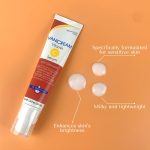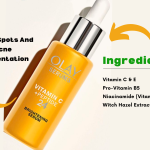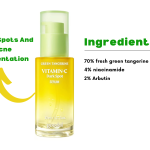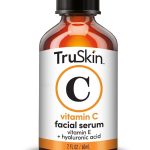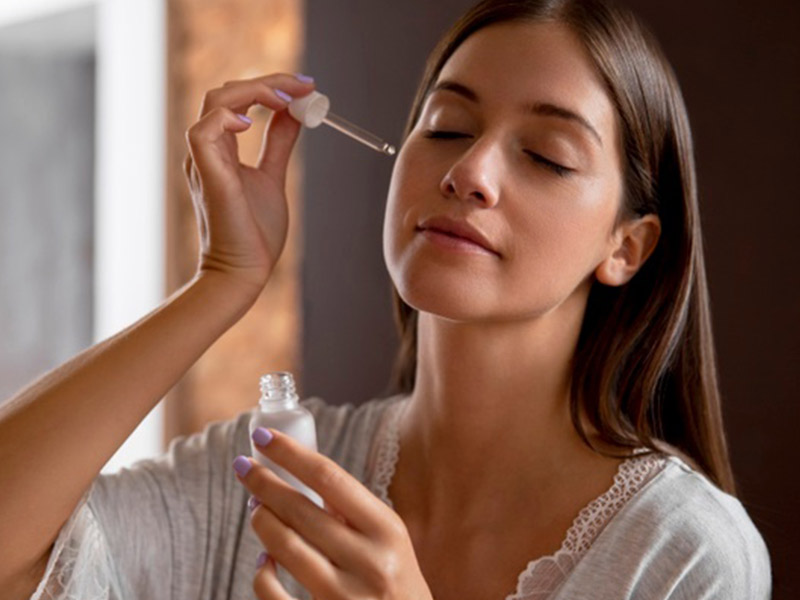It might be challenging, but it is not impossible to achieve a healthy balance between oily skin and sensitive skin by taking the appropriate approach. Oil production has to be reduced, but the skin can’t be too dried out by the treatment you choose for oily skin. Keep your skin moisturized by using products that do not contain oil, are non-comedogenic, and inhibit the formation of sebum. Use products that are oil-free, non-comedogenic, and limit sebum production to keep your skin from being too dry. If you have sensitive skin, look for cleansers that include aloe vera and chamomile, and avoid fragrances altogether.

Understanding Oily Skin and Sensitive Skin
Oily skin and sensitive skin are two distinct skin types that require special care. Oily skin that makes sebum causes pimples and shine. Skin that is sensitive reacts quickly and gets irritated. For both situations, skin care needs to be balanced. If you have oily or sensitive skin, you should wash with a fragrance-free, hypoallergenic cleanser. Apply a mild moisturizer and sunscreen that won’t clog your pores. You can keep oily and sensitive skin healthy by testing new products on a small area first and avoiding harsh chemicals.
Common Irritants to Avoid
Common Irritants to Avoid for Oily Skin and Sensitive Skin:
- Skincare product fragrances might irritate delicate skin. Find “unscented” or fragrance-free items.
- Sulfates, alcohol, and powerful detergents may strip skin of its natural oils and increase oiliness and irritation.
- Alcohol-based toners and astringents may dry oily and sensitive skin, increasing oil production and irritation. Avoid alcohol.
- Harsh exfoliants may irritate and harm the skin. Use enzymes or salicylic acid instead.
Best Summer-Optimized Skincare Routine for Oily Skin: Tips and Products | 5 Unique FAQs
- Synthetic colors in skincare products might induce sensitivities and allergic responses. Avoid artificially colored items.
- Lightweight, non-comedogenic sunscreens with a high SPF should be used in order to prevent oily skin from clogging pores. Zinc oxide or titanium dioxide sunscreens work.
- Essential oil-based skincare products may aggravate oily, sensitive skin.
Avoiding these common irritants helps reduce oiliness and sensitivity, creating healthier, more balanced skin.
Choosing Gentle Products for Oily and Sensitive Skin

Look for cleansers made for oily and sensitive skin that are soft and won’t hurt it. Choose cleaners with a reasonable amount of foam or gel to get rid of oil without hurting the skin’s moisture layer.
- Look for non-comedogenic lotions that are lightweight and oil-free to avoid clogging your pores. Look for mild formulas that won’t cause acne.
- The skin is soothed and hydrated with the help of aloe vera, chamomile, hyaluronic acid, and niacinamide. These chemicals hydrate the skin and make it less sensitive.
- Fragrances may hurt delicate skin. Use items that don’t have a scent and are safe to avoid getting sensitive.
- The skin might become oilier and more sensitive if exposed to chemicals, sulfates, or alcohol.
- Patch-test a new product before you use it. Apply a tiny quantity on your wrist and see the results 24 hours later.
- Ask a doctor for recommendations if you have oily, sensitive skin and are unsure of which products would work best for you.
By choosing gentle, non-irritating products that cater to oily skin and sensitive skin needs, you can maintain a balanced and healthy complexion while addressing both skin concerns effectively.
Key Ingredients to Look for
- Niacinamide regulates sebum production, shrinks pores, and improves skin texture. It soothes sensitive skin.
- Calming and moisturizing, aloe vera soothes inflammation and redness while nourishing oily skin.
- Hydrates skin without adding oil. It moisturizes and enhances skin texture.
- Centella Asiatica, or “Cica,” soothes and calms sensitive skin. It reduces redness and heals skin.
- Antioxidant-rich green tea extract decreases inflammation, sebum production, and environmental damage.
Effective oily skin treatments for acne-prone skin | 7 Strategies for Healthy Skin
- Witch hazel tightens pores and reduces oil production. Anti-inflammatory witch hazel benefits sensitive skin.
- This beta-hydroxy acid exfoliates, unclogs pores, and reduces acne. It helps blemish-prone oily skin.
When selecting products for oily skin and sensitive skin, look for formulations that incorporate these key ingredients to address both concerns effectively while providing the gentle care and balance to the skin.
Skincare Routine Tips for Oily and Sensitive Skin

- Clean your face twice a day using a mild, hypoallergenic cleanser to get rid of grime and oil without drying out your skin.
- Light chemical exfoliants, such as salicylic acid, should be used twice weekly, at the most.
- Over-exfoliation causes irritation and oil production.
- For non-greasy hydration, use a lightweight, oil-free moisturizer. Non-comedogenic products won’t clog pores.
- Apply a broad-spectrum, non-comedogenic sunscreen with an SPF of at least 30 to protect your skin from harmful UV rays and keep it from becoming sensitive.
- Use benzoyl peroxide or tea tree oil spot treatments to minimize inflammation and battle acne-causing bacteria.
- Before applying new products to your face, test them for unwanted reactions.
It’s crucial to tailor your skincare routine to your specific needs since everyone’s skin is different. If you have oily skin and sensitive skin and are unclear about how to care for it, a dermatologist can provide you with tailored guidance and product choices.
Lifestyle Factors to Consider
Diet:
The overall state of your skin may be improved by eating a nutritious diet rich in fruits, vegetables, and whole grains. Consuming less processed food and sugary snacks may help control greasiness and lower inflammation.
Stress Management:
Hormonal imbalances, greasy skin, and sensitivity may all be made worse by high levels of stress. To improve general well-being, try stress-relieving activities like meditation, exercise, or leisure pursuits.
Hydration:
If you drink enough water, your skin will retain its natural glow and suppleness. Aim for eight glasses of water or more each day.
Clear Skin Secrets: Top 3 Serums for Oily Skin and Acne-Prone Complexion
Sleep:
Getting adequate good sleep is essential for skin balance and renewal. Aim for 7-8 hours of sleep per night for the greatest potential skin health.
Avoid Touching Your Face:
Frequent touching of the face may transmit oil, germs, and grime, causing discomfort and breakouts. To avoid possible skin problems, refrain from touching your face needlessly.
Clean Makeup Equipment:
Makeup brushes, sponges, and other tools should be washed and disinfected on a regular basis to prevent the buildup of bacteria and oil that might transfer to the skin.
Taking these lifestyle factors into consideration alongside a proper skincare routine can help manage oily skin and sensitive skin, promoting a healthier and more balanced complexion.
Conclusion
In conclusion, dealing with oily skin and sensitive skin requires a careful and balanced approach to skincare. For selecting appropriate products and building a successful regimen, it is essential to understand the distinctive characteristics of each skin type. You may treat oiliness and sensitivity while preserving a healthy complexion by using mild cleansers, lightweight moisturizers, and essential components like niacinamide and aloe vera.
A proper diet, stress management, enough water intake, adequate rest, and little facial touching all contribute to radiant skin. Keep in mind that the best results for your sensitive and oily skin may be achieved by tailoring your skincare routine to your specific needs with the guidance of a dermatologist.



